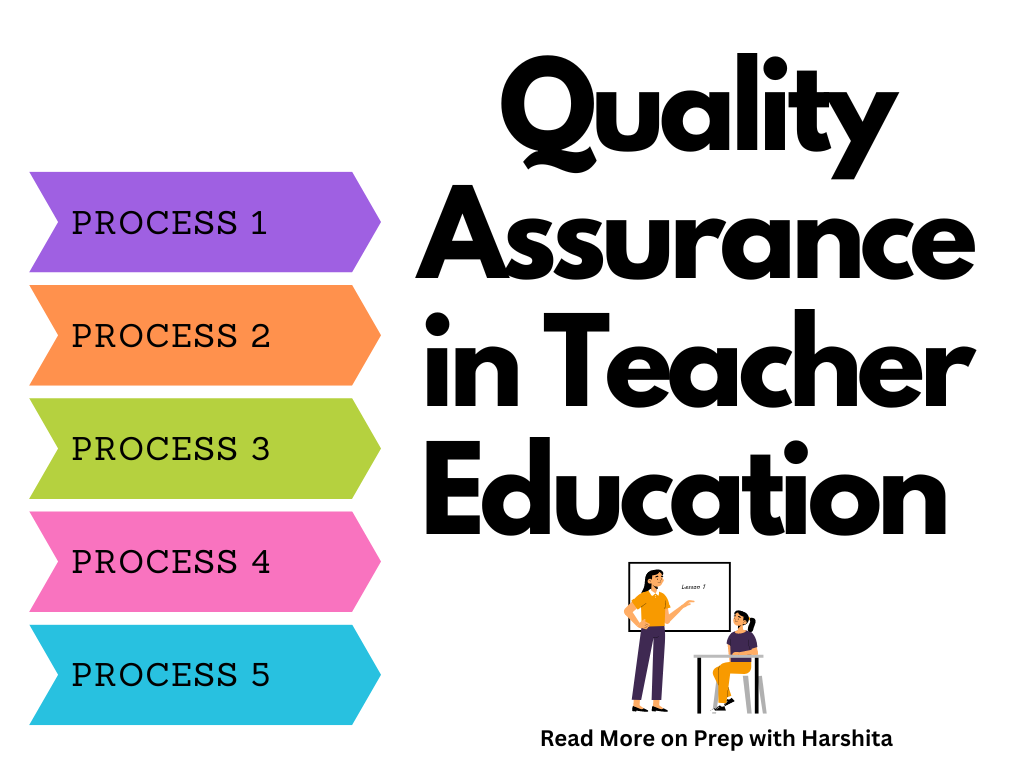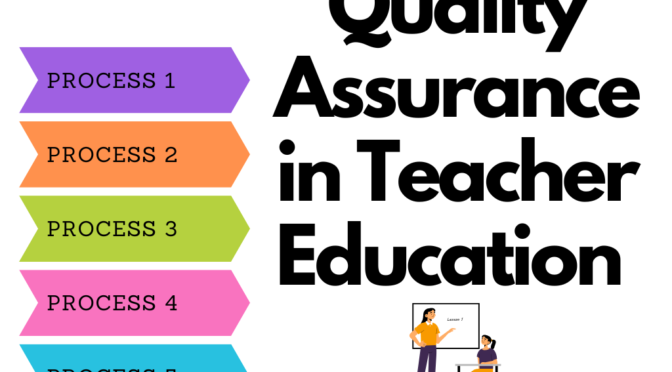Quality assurance in teacher education encompasses a range of activities and processes aimed at ensuring that teacher education programs meet specific standards and criteria.
Here is a more detailed explanation of the components and practices involved in quality assurance in teacher education:
- Program Accreditation: Accreditation is a critical aspect of quality assurance in teacher education. Accrediting bodies evaluate and assess teacher education programs against predetermined standards and criteria. These standards typically cover areas such as curriculum design, faculty qualifications, resources, assessment and evaluation practices, field experiences, and program outcomes. Accreditation ensures that programs meet the required benchmarks for delivering high-quality teacher education.
- Program Evaluation: Regular program evaluation is an integral part of quality assurance. This involves conducting systematic assessments of teacher education programs to identify areas of strength and areas that require improvement. Evaluation may involve various methods such as self-assessment, external reviews, site visits, surveys, and analysis of student outcomes. Program evaluations help identify areas for enhancement and inform ongoing program development and improvement efforts.
- Curriculum Review and Development: Quality assurance in teacher education involves reviewing and developing curriculum frameworks to ensure they are relevant, up-to-date, and aligned with national or regional standards. This includes assessing the appropriateness of subject content, pedagogical approaches, assessment methods, and the integration of technology. Regular review and revision of the curriculum help address emerging educational needs and trends and equip future teachers with the necessary knowledge and skills.
- Faculty Qualifications and Professional Development: Ensuring the qualifications and professional development of faculty members is vital for quality assurance. Teacher education programs should employ highly qualified faculty members with expertise in relevant subject areas and pedagogy. Ongoing professional development opportunities for faculty support their growth, keep them updated with the latest research and best practices, and enhance their teaching effectiveness.
- Field Experiences and Practicum: Quality assurance involves providing robust and well-structured field experiences and practicum opportunities for pre-service teachers. These experiences allow students to apply their knowledge in real classroom settings, develop practical teaching skills, and receive feedback and guidance from experienced educators. Quality assurance processes ensure that field experiences are carefully planned, supervised, and aligned with program goals to facilitate meaningful learning experiences for future teachers.
- Assessment and Evaluation Practices: Quality assurance includes establishing sound assessment and evaluation practices in teacher education programs. This involves ensuring that assessments effectively measure students’ knowledge, skills, and competencies related to teaching. It also involves providing timely and constructive feedback to students to support their growth and development. Assessment practices should align with program objectives, be valid and reliable, and reflect best practices in educational assessment.
- Collaboration with Schools and Stakeholders: Quality assurance in teacher education includes fostering strong partnerships and collaborations with schools, school administrators, and other stakeholders. These collaborations help ensure that teacher education programs are responsive to the needs of schools and communities and reflect the realities of the teaching profession. Engaging stakeholders in program development, evaluation, and continuous improvement processes strengthens the quality and relevance of teacher education programs.
- Continuous Improvement: It is an ongoing process of continuous improvement. It involves regularly monitoring and reviewing program outcomes, soliciting feedback from students, graduates, employers, and other stakeholders, and implementing necessary changes and enhancements. This iterative process helps ensure that teacher education programs remain relevant, effective, and responsive to changing educational needs.
By implementing robust quality assurance practices, teacher education programs can uphold high standards of quality, enhance the preparation of future teachers, and contribute to the overall improvement of education systems.
Also Read: Concept of In-service Teacher Education

Also Visit: Prep with Harshita

